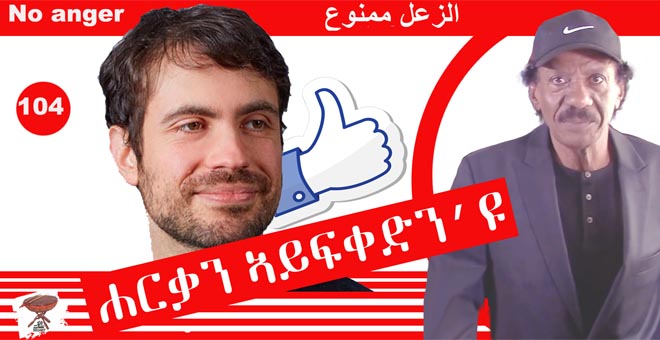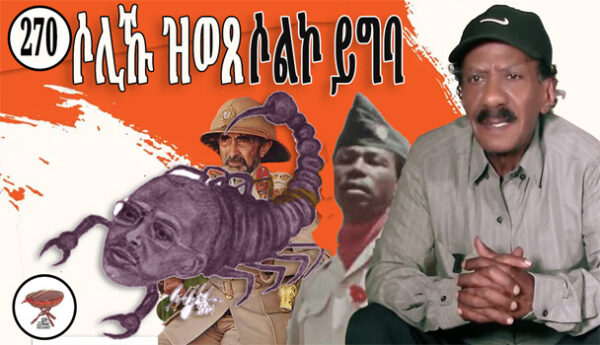Kings of Kings and Colonels
In ancient times, each locality, and later each city, had a king. One of them emerged stronger and subjugated the rest. They accepted his authority over them and submitted to his rule with varying level of autonomy. Thus, he became King of Kings, who overtime became an expansionist emperor. Some historian trace that to the Byzantine emperors who gradually accepted neighboring king of kings, such as the Sasanians (Persia/Iran) known as Shahan Shahs, as their equivalents. The last Iranian Shahan shah, Mohammed Reza Pahlavi; he was overthrown by Ayatollah Kumeini’s during the 1979 revolution.
The Shahan Shah was a friend of Haile Selassie; in 1968 he visited Asmara with his wife Queen Farah Diba where he was accorded an elaborate reception: the main street in Asmara was closed to the public while workers washed the tarmac, painted the trunk of the palm trees and the edge of the pavement, white. Iranian and Ethiopian flags were hoisted all over the place and poster pictures of the visiting couple plastered on the walls of the street. The Queen also visited the Elaberet plantation on the way to Keren.
The Jews title, equivalent to “the King of Kings of Kings” is Melech Malchei HaMelachim though they believe that name is reserved for God. The Assyrian title for king of kings was Shar Sharani while in Armenia the equivalent title was Basileus Basileon.
In what is now Eritrea and Ethiopia, the first emperor to call himself king of kings was “Sembrouthes… who called himself Nəgusse Neggest. That information was found in an inscription in Greek around the village of Dekemhare, close to the Eritrean capital city, Asmara.’
The last king of Kings of the so-called Solomonic dynasty that ruled Abyssinia (1270-1974) was Haile Selassie who was deposed by the Derg Revolution in 1974.
Occupational Colonels in Keren
In my school years I knew a few strictly professional police colonels, most of them were old officers of the British Field Force. Some of them became lethal tools of the Ethiopian occupation while the rest were benign and considered themselves law enforcers until their death or retirement. But then there were Colonels like Abbe of the Commandos force. I left Keren when he was still a captain, but I knew he was promoted to a colonel. Many years later I found him in Kuwait and when I addressed him as captain Abbe, his face stiffened, and he corrected me: General Abbe.
But I also knew a few other Colonels of the Ethiopian occupational army: Colonel Welaana, Colonel Werqu, and Colonel Biju (or Bichu)–who was the most outgoing and famous colonel. He was killed in a bar in Asmara by clandestine members of the Eritrean liberation forces.
The worst was Colonel Welaana, the Butcher of Ona and Besekdira, he oversaw the massacre of 600 and 250 villagers in the two villages, respectively. During his time, many Eritreans were imprisoned, suspected of supporting the Eritrean liberation forces. I was a ninth grader when together with some friends we were jailed for unfounded crime.
One late morning, two soldiers carried me to Welaana’s office at Forto to be questioned by him. He sat behind a large desk straightening his long mustache and giving me a deadly look … that is a story for another time…if you are interested.
Our jail mates were older people who were later killed. Their bodies were dropped at the dry bed of the Shfshfi river and left there covered with some sand. People walking by would find the bodies that animals uncover and then relatives of missing persons will go to the place to identify the bodies for proper burial.
Soon, Colonel Welaana was replaced by Colonel Werqu who tried hard to pacify the town with soft gestures: being extra nice and smiling non-stop, trying to learn Tigrayit, lifting the dusk-to-dawn curfew that went on for six-years in Keren; that’s why I don’t have mush memory of my town at night though I heard it was full of lights like Vegas! It could have been an exaggeration.
Once Werqu brought an amateur army brigade band from Asmara to cajole the people of Keren. They held a night-long concert to which the residents of the town were invited. But Kerenites accepted the invitation to satisfy their curiosity; they wanted to walk on the grounds of the notorious Forto garrison. Not many had ventured there since the Ethiopian occupation after which Forto became a frightening place– not many who were taken there came out alive.
Now Forto became a venue of a concert. They erected a tent, built a stage, and soldiers played rudimentary songs with lyrics of a few repeated words, in Amharic, that many didn’t understand. We watched Gennene Debbebe, the soldier who composed a seven-word song that became a hit among the soldiers: Asmeraytu ketema, belibie emagnalehu end tagegni girma (Asmara city, I wish from my heart you would be magnificence).
Of course, no one expected him to write a new lyric for Keren. He just replaced Asmeraytu with Kereneytu and delivered the same song all night. He visited other towns to entertain the garrison dwellers; he would replace Asmeraytu with the name of the town where the garrison is and perform the same seven-word song.
At Forto Keren, the nostalgic young peasant-soldiers jumped and sweated to the beat of Gennene’s song—they looked very homesick. Then it was an open mic session. Everyone jumped up to the stage and gave it a try. A song by a town prostitute with a heavily tattooed neck still rings in my head: endenesh endenesh, endenesh endenesha, meaning, how are you how are you, how are you how are you! Like a broken record, she repeated that for what seemed eternity.
Then the crowd left in the wee hours of night. See! Werqu literally liked the “killing me softly” approach, unlike Welaana who was a born butcher.
Eritrean Colonels
Colonels are of two types: 1) active commanders and soldiers, and 2) the support staff who just get the title as a promotion. They could be medical doctors, intelligence officers, logistics personnel, etc. The former are benign and some of them are nice people. I know a few ex-Eritrean army colonels, and I would not include them in the brutal colonels that I observed as a teenager. The latter are commanders and active military people. And since most of them graduate to the title over time, they have good affinity with the rank and file under their command. It’s natural that some soldiers look up to them while others consider them corrupt and abusive.
Generally, anyone with a title above a Colonel is more of a political appointee. Generally, a Colonel or Coronel (and many countries have a different name for the rank of a Colonel) is above a lieutenant Colonel and below a brigadier General. A Colonel’s rank might quickly catapult you to a higher rank or it becomes the highest rank beyond which you will never advance.
The origin of the title is probably the Italian word Colonna (column), “commander of a column”. Like a brigadier is a brigade commander.
The Italians and Swiss say, Colonnello, Maltese say Kurunell, and Portugal and Spain Coronel. In Eritrea, while city boys say Colonel, the rest say Coronel or Koronel. In Arabic a Colonel is Aqeed, root word is Aqd, contract. Most Tigrayans say Konerel.
Tidbits
Do you know between 1947 and 1962, the commander of the Ethiopian air force was Swedish? Did you know Nazi Germany’s Führer Adolf Hitler gave Ethiopia 16,000 rifles, 600 machine guns, 3 airplanes, and 10 million rounds of ammunition? Did you know there were foreign mercenaries fighting alongside the Ethiopian forces, including Austrian Nazis and Belgian Fascists? I am adding this because someone said to me (though he said he was joking) that the Eritrean struggle was an “Arab managed insurrection”. So, I am providing some facts that we can use as a joke in conversations.
Usurper Colonels
There were many (and still are) colonels who choked their people in many countries. Some are put in that position, others are power hungry rascals, and others are boringly dull and foolish. But the bad colonels greatly outnumber the others. Let’s see famous colonels who usurped power in their countries:
Gamal Abdel Nasser, his replacement Anwar Al Sadat (both Egypt), Muammar Al-Gaddafi (Libya) Jaafar Numeiry (Sudan), Ali Abdalla Saleh (Yemen), and Mengistu Haile Mariam (Ethiopia). I am just mentioning a few from memory, only Colonels, not the many generals, captains, or even junior soldiers who crushed their way into presidential palaces riding tanks.
But the worst yet, the uncalculating gambler, who risked the wellbeing of his people and the entire Horn of Africa region, is Ethiopia’s colonel Abiy Ahmed. He is childish, unrefined, pompous, and too showy who “knows more about wardrobe room than a war room” as someone put it. See how the Nobel foundation embarrassed itself? Awarding such a prestigious award to a man who is no better than a boy scout platoon leader in unforgivable.
Eritrean Colonels
Most conscripted ex-Sawa Eritrean soldiers I met, have nothing good to say about the colonels under whom they served. It could be because the objective or subjective dislike, or it could be they are the likes of Abiy. I wish it’s not the latter. But we shouldn’t despair, only a few colonels are needed to right the wrong, provided their conscience is alive. After all, you do not need a hundred colonels to get involved in reforming a system; they might end up in a fight over who become the leader and make matters worse. For instance, Colonel Seid Hijay’s attempt in 2013 was aborted because there were so many of them involved.
——–
NB: This a summarty of a Youtube program I presented in Tigrigna, Negarit 138, at my YouTube Channel, Negarit
Ref: public sources and personal memories




Awate Forum